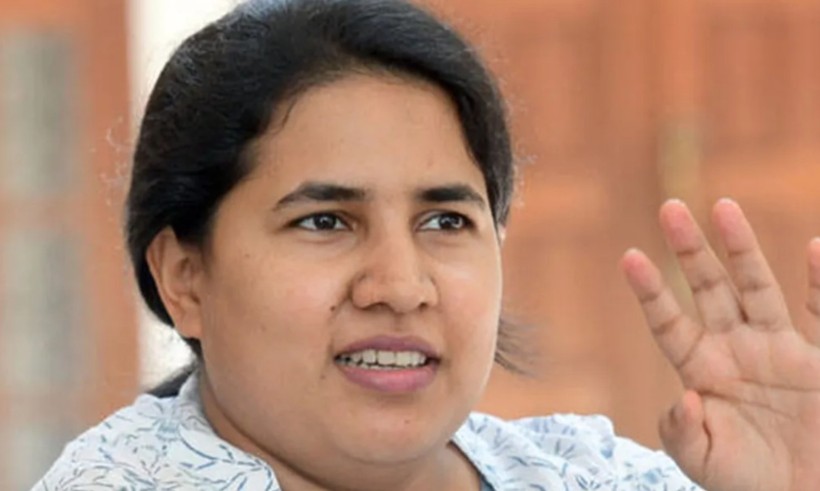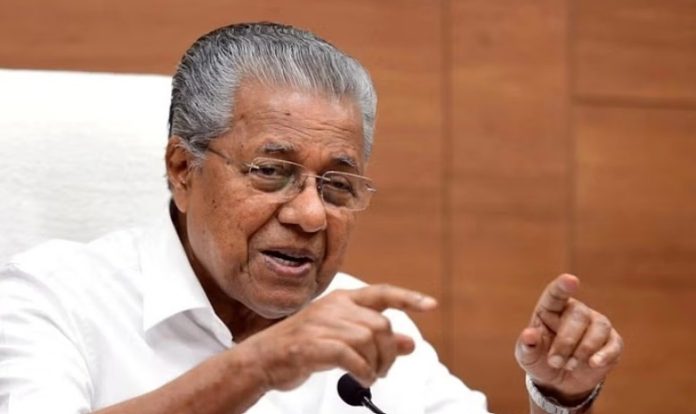The often-turbulent world of Indian politics, where allegations and counter-allegations swirl with relentless energy, has recently seen a personal dimension added to the fray. Veena T, the daughter of Kerala’s Chief Minister Pinarayi Vijayan, has stepped forward to address what she describes as “false” news circulating about her. This direct response from a family member of a prominent political figure underscores the increasing intersection of personal lives and public scrutiny in the modern media landscape.
Veena T’s decision to publicly refute the news reports indicates the gravity of the situation and the perceived damage that the allegations could inflict on her reputation and that of her family. It also highlights the challenges faced by public figures and their families in navigating the often-intrusive nature of media coverage, particularly in the age of social media where information, whether accurate or not, can spread rapidly.
The exact nature of the “false” news that prompted Veena T’s response is crucial to understanding the context of her statement. Without specific details, it is difficult to assess the validity of her claims or the potential motivations behind the news reports. However, her use of the term “false” suggests that she believes the information being circulated is not only inaccurate but also potentially malicious or defamatory.
In the Indian political context, allegations against family members of political leaders are often used as a tool to discredit or undermine their credibility. Such allegations can range from accusations of financial impropriety to claims of nepotism or abuse of power. Veena T’s response suggests that she recognizes the potential for these allegations to be used against her father and is therefore taking proactive steps to defend her reputation.
The manner in which Veena T has chosen to respond is also significant. Public statements from family members of political leaders are relatively rare in India, particularly when they involve direct rebuttals of news reports. This suggests that she feels compelled to address the allegations directly and forcefully, rather than relying on official channels or legal proceedings.

The timing of her response is also likely to be a factor. If the news reports have gained significant traction or are being widely circulated, a swift and decisive response may be seen as essential to mitigate any potential damage. Conversely, if the allegations are relatively minor or have not gained widespread attention, her response may be seen as an attempt to preemptively address any potential escalation.
The role of social media in disseminating the news reports and Veena T’s response cannot be overlooked. In the digital age, information can spread rapidly through social media platforms, often bypassing traditional media outlets. 1 This can create a challenging environment for public figures, who may find themselves facing allegations or accusations that have gained widespread traction before they have had an opportunity to respond.
The reaction to Veena T’s response is likely to be varied and polarized. Supporters of Pinarayi Vijayan and his political party may rally behind her, dismissing the news reports as politically motivated attacks. Detractors, on the other hand, may seize upon the allegations as evidence of wrongdoing or impropriety.
The legal implications of the news reports and Veena T’s response will also be a consideration. Depending on the nature of the allegations and the evidence presented, there may be grounds for legal action, such as defamation lawsuits. However, such proceedings can be lengthy and complex, and may not always result in a satisfactory resolution.
The broader implications of this incident extend beyond the immediate context of Veena T’s response. It highlights the increasing scrutiny faced by family members of political leaders in India and the challenges they face in maintaining their privacy and reputation. It also underscores the need for responsible journalism and the importance of verifying information before it is published or circulated.
The public’s perception of this incident will likely be shaped by their existing political leanings and their trust in the media outlets reporting on the allegations. In a highly polarized political environment, it can be difficult to separate fact from fiction, and individuals may be more likely to believe information that aligns with their pre-existing beliefs.
Ultimately, the resolution of this situation will depend on the evidence presented and the credibility of the sources involved. Veena T’s response has set the stage for a potential confrontation, and the coming days and weeks are likely to see further developments as the allegations are investigated and debated. This incident serves as a reminder of the complex interplay between politics, media, and personal lives in contemporary India.


